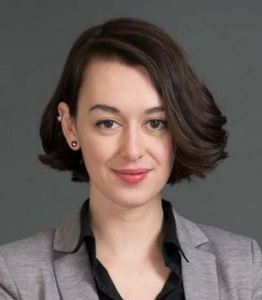This week, the WRD Alumni Spotlight is on Maureen Clancy, a 2013 graduate of the BA in WRD program. She currently works as a Project Manager at a global executive search firm.
What have you been doing professionally since you earned your degree?
After graduating, I worked as a paralegal at a boutique estate planning law firm for just over a year. My work dealt heavily with the composition and monitoring of very important legal documents, some that spanned back through generations of families! Precision was key; I certainly learned how to pay close attention to the details. While I certainly became a more focused and attentive worker, I realized that ultimately a career in law was not for me.
Currently I am 11 months into my position as a Project Manager at Perrett Laver, a global executive search firm. I work particularly in the global development sector. I am responsible for organizing and overseeing the search process from start to finish. In addition, I ensure that communications are clear for both the client and candidates. We have the privilege of helping organizations find leaders to help them continue their transformative impacts on the world.
What is a typical day “on the job” for you?
There is truly no day that is the same. My core tasks are to answer any client and/or candidate questions, distribute key documents, produce “timelines” for a process, and complete daily “wellness checks” on each running project. Questions that I ask may include, “Have we locked down the job description for this role? Is the research team feeling secure? Has this candidate received the proper preparatory materials for interview?” It takes time to discover the nuanced elements of my position, but this is what keeps me busy; I am always learning and developing new strategies.
How did your education from DePaul influence what you’re doing now?
I cannot tell you how often I use my rhetorical background in my work as a Project Manager. Proper communication (in all ways) is the crux of my work, and it is essential to be able to respond properly according to the respective situational and historical contexts. In human resources, it is extremely important to have audience awareness in order to illustrate a position and the candidates in the best and most accurate light. Each process needs to be specially molded and cared for. WRD gave me the tools to be a “chameleon communicator”.
What were the most helpful courses you took in WRD?
My classes on Genre and on Semiotics were very formative in my understanding of the world outside of an academic context. Genre helped me to understand different subjects and contexts holistically, and more importantly, how to identify them in real time. Semiotics encouraged me to think about communication in an entirely new light. So many non-verbal, abstract elements of our world quietly translate to concrete concepts! I also would have never become fascinated with anthropocentrism if it wasn’t for that class. I will also say that my class on visual rhetoric opened my eyes to how heavily metaphors shape our use of language – if you take a listen to any conversation, it’s amazing how many you can pick out!
What advice would you give to a WRD student who would one day like to work in job like yours?
You will be shocked at how many robust professionals do not know how to write appropriately and/or effectively. Knowing how to write, read, and analyze text will be a huge advantage for you in the working world, more than you may realize. Hone in on your ability to have a birds’ eye view of communication. Most jobs are not transactional; you will have to learn to roll with the punches and constantly reframe your mindset. WRD gives you this ability if you let it. Of course, pay as many visits to the Writing Center as you can!
